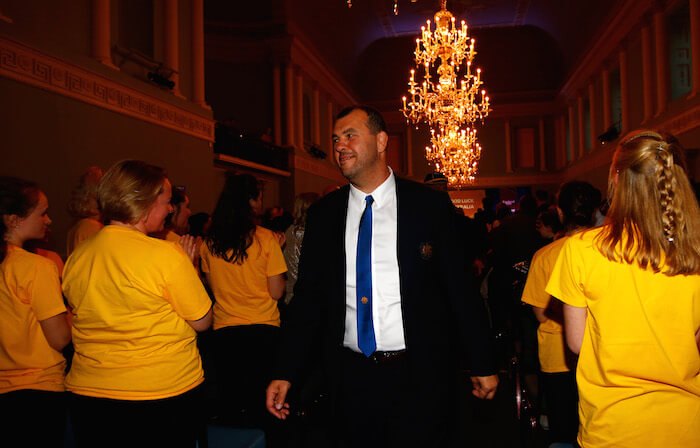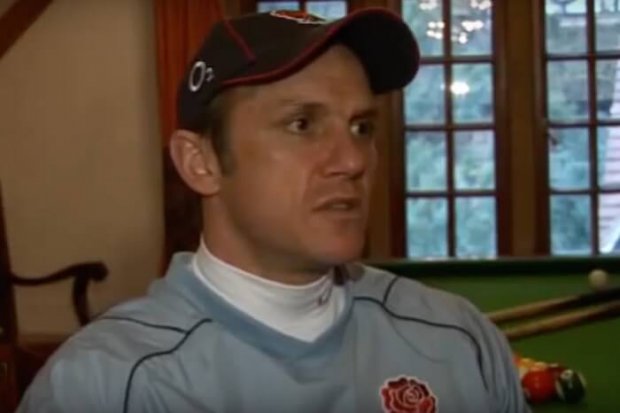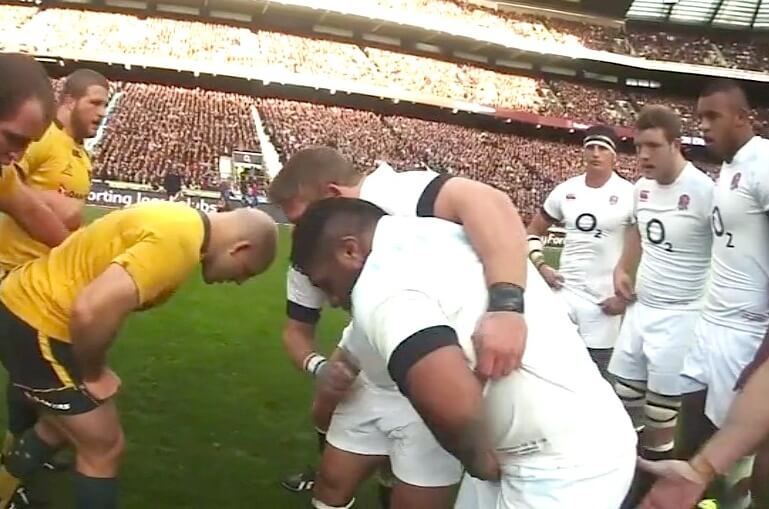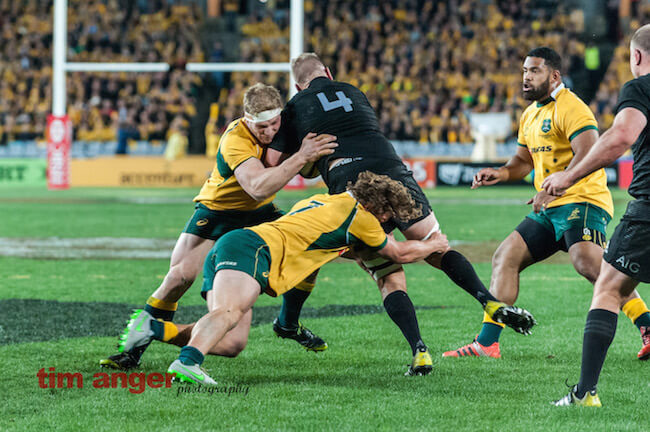In a recent conversation with Brian Smith, I found out exactly what he thinks about the forthcoming Rugby World Cup Pool A match between Australia and England.
Naturally the scrum battle and the balance between the tight and loose featured prominently. But so did England’s bench rotation policy and the ramifications for their coaching staff if they lose this one.
Brian has played for the Wallabies and coached for England in previous World Cups. He brings a refreshing mix of candour and strategy to the pre-match analytics. Here’s what he had to say about some key aspects.
The up-front battle
“This match is going to come down to the nitty-gritty and Australia will need to be spot on in the set pieces. With Stephen Moore there, the line out will be fine. But we’ll also need him to last the full 80’ to keep the tight stuff together.
The scrum battle is going to be very interesting, as it was only 12 months or so ago that Australian teams were falling apart in the final stages of Twickenham matches, particularly on their own scrum feed.
But Michael Cheika seems to have understood what had to be done to turn around Australia’s scrum and recent performances have been encouraging. At the same time, England is without the two men – Dylan Hartley and Alex Corbisiero – who collectively made their scrum 20% more destructive.
The England scrum is still very strong and this will be Australia’s biggest test. But the gap has closed a lot recently and the Australian pack can take the field quietly confident of holding their own.”
The right balance
“Despite Australia’s improvements, expect England to still scrum for penalties. It’s part of their culture. Their modis operandi. This tactic is fine if the whistle goes your way and you’re able to knock over 9 or more points for your efforts. But what if it doesn’t?
As part of the England coaching group in 2010, we got it wrong in a match against the Wallabies in Perth. While we achieved our goal of driving the Wallabies scrum into the ground, we lost the match. But a week later, we were able to turn things around, get the balance right and win the Sydney match.”
The big decision
“The England side at a similar point to where they were before that Perth match in 2010. Graham Rowntree is going to want to drive the Australian scrum into the ground and Andy Farrell is going to want to make good use of the genuine razzle dazzle they have in the outside backs.
The difference this time is that if they scrum for penalties and lose, they don’t have another shot in the tournament to change their approach. So it’s important that England get the balance right, but it’s unlikely they will.
They will keep it tight and try to bully Australia, for which they may get some reward. But they also have to be very careful. Before you know it, the 80 minutes is gone and if you haven’t played any footy then it’s out the back door.”
The referee
“If the match does turn into a scrum-a-thon, it really doesn’t matter what anyone thinks about the angles and body heights. All that matters is what the referee and his assistants think and, as always, some decisions will be made that have the technicians in both camps scratching their heads.
So what do we know about the man in the middle this week (Romain Poite)? He has refereed Australia at Twickenham before. He has even been there when the wheels have come off the Australian scrum. But he is astute enough to know that Australia has improved its scrummaging significantly and face some different cattle this time around.
Australia just needs to keep that in mind and not get flustered if things don’t go as they’d hoped in the early stages.”
The break-down
“Australia also needs to remember that possession is contested far more often at the point of tackle than it is in the scrum. And this is an area where Australia has an overwhelming advantage.
While Tom Woods from England and Scott Fardy from Australia are both excellent players, they cancel each other out. But Chris Robshaw has never been an out-and-out fetcher and he is going up against two of the best fetchers in the game in Michael Hooper and David Pocock.
Australia will do very well in the tackle area, so long as they protect their own ball adequately. Although some room should have been made for Sean McMahon on the bench.”
The goal-kickers
“In tournaments like these, the ability to kick well under pressure often determines match outcomes. Farrell has kicked very well at Twickenham and you have to expect England will have an advantage here. It can swirl around a bit and even guys like Dan Carter have had kicking troubles there in the past. It’s an area that could be crucial. It’s going to be such an arm-wrestle and a lot of pressure will be on Foley’s shoulders to make sure he nails his goals.”
The benches
“Both benches are strong and will make some big contributions. But Stuart Lancaster’s player rotation policy is hard to comprehend. Clive Woodward makes a really simple point and that’s that if you’ve got a well-prepared test team, why make all these changes in crucial positions at the 50 or 60 minute mark.
Why would a coach need to do that apart from to appease his players and keep them all with their noses pointed in the same direction. You put the results first and have the ‘Dear John’ chats with the players afterwards. This rotation policy is a big negative for England.”

The coaches
“The England coaching staff would be feeling very nervous right now. Pressure has been mounting in the media regarding captaincy and various selections. A loss to Australia would almost certainly see England make a pre-mature exit from the tournament and the appointment of a new coaching staff would be made with almost immediate effect.
Like England, Cheika will be desperate for a win. But he has two bites of the cherry when it comes to moving into the quarters. So the atmosphere will probably be a tad more relaxed in the Australian camp and that’s got to be a good thing.”
See more of what Brian and other Aussie greats had to say at a recent Rugby Business Network event





